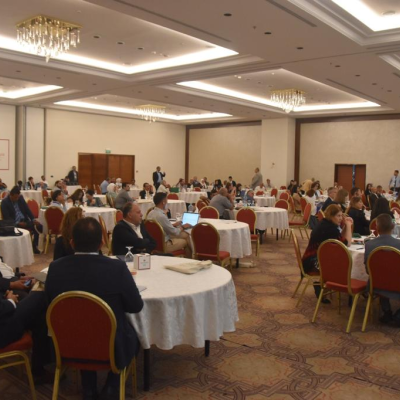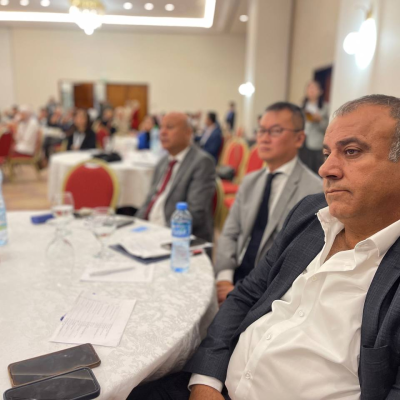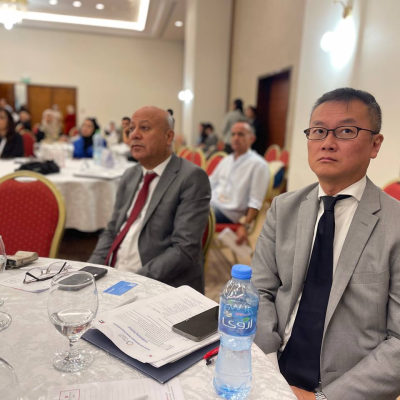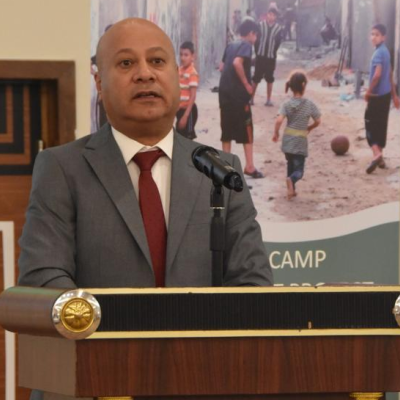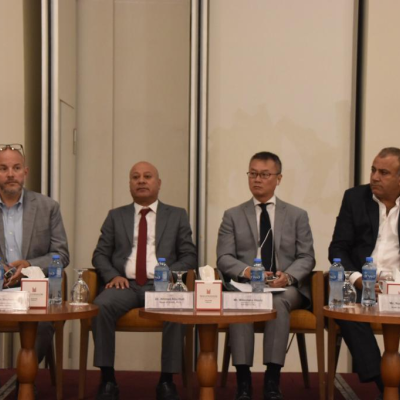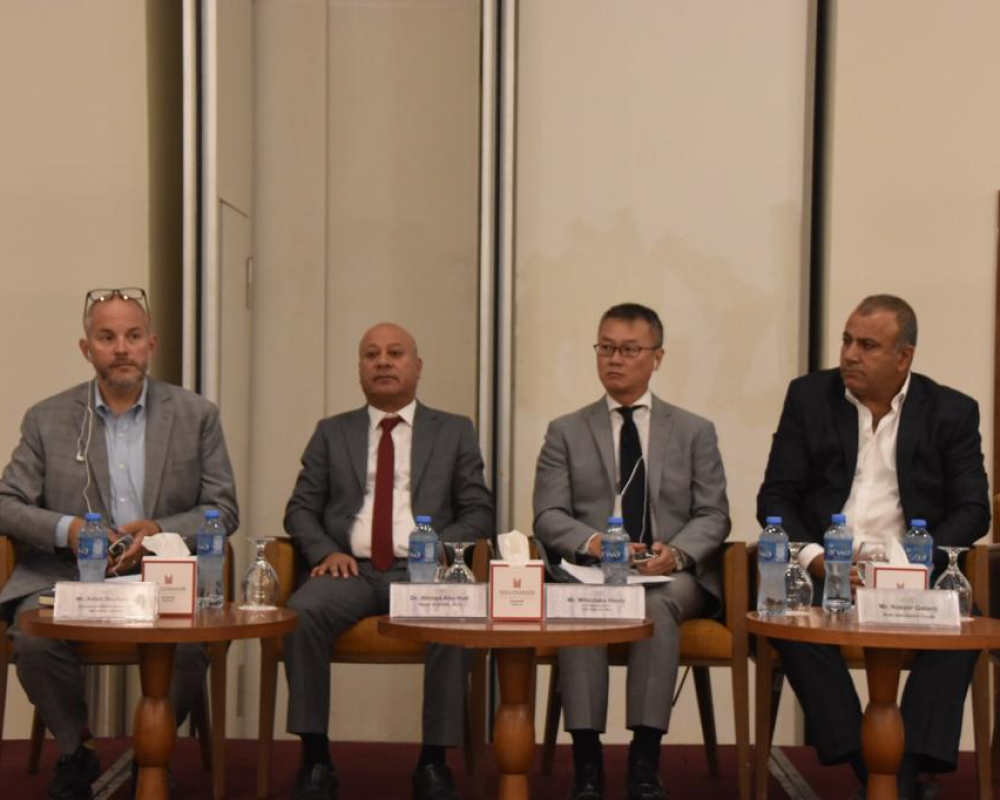
Ramallah / PNN /
Member of the Executive Committee of the Palestine Liberation Organization (PLO) and Head of the Refugee Affairs Department, Dr. Ahmed Abu Holi, affirmed that UNRWA (United Nations Relief and Works Agency) holds the responsibility for Palestinian refugees in its five operational areas, as stipulated by the mandate granted to it under Resolution 302. He noted that the PLO will not accept any substitute for UNRWA and will not allow any entity to carry out its tasks on its behalf. He emphasized that the organization's work only concludes with a political solution to the refugee issue, through the implementation of Article 11 of Resolution 194, which calls for the return of refugees to their homes from which they were displaced in the year 1948.
Dr. Abu Holi added in his speech at the workshop held by the Refugee Affairs Department of the PLO in collaboration with the Japan International Cooperation Agency (JICA) this morning, under the title "Living Conditions in Palestinian Refugee Camps," that ensuring a decent life and improving the quality of services provided to Palestinian refugees does not contradict their political and legal right to return to their homes from which they were displaced in 1948, in accordance with Resolution 194.
The workshop was attended by the Advisor to the Palestinian Prime Minister for Arab and Islamic Funds Affairs, Nasser Qatami, the Director of UNRWA Operations in the West Bank and Jerusalem, Adam Polakous, the General Representative of JICA's office in Palestine, Mitsutaka Hoshi, as well as representatives from various embassies, diplomatic missions, international, Arab, Islamic, and local institutions in Palestine.
Dr. Ahmed Abu Holi emphasized that President Mahmoud Abbas, the President of the State of Palestine, attaches great importance to the refugee camps, and his instructions are clear to the official authorities to meet their needs and work to alleviate the suffering of Palestinian refugees and ensure dignified living conditions through coordination with UNRWA.
Dr. Abu Holi pointed out the importance of today's workshop in highlighting the needs of Palestinian refugee camps in the West Bank and Jerusalem for prioritized projects for Palestinian refugees. This also includes their funding requirements, which have been identified through a comprehensive and participatory approach involving all segments of the community within the camps, as part of the "Camp Improvement Project" funded by the Japan International Cooperation Agency (JICA).
He affirmed that the "Camp Improvement Project" aligns with the general policy and strategic goal set by the Refugee Affairs Department in its strategy for the next five years to enhance Palestinian refugee camps and improve their conditions. The project aims to provide for the needs of Palestinian refugees and empower them to overcome their living conditions by supporting UNRWA's work and enabling it to carry out its mandate.
He continued, stating, "Any effort made by the Refugee Affairs Department, the Palestinian government, or any other entity is a supportive and reinforcing effort for UNRWA's work, and it is not a replacement or a supplement to it."
Dr. Abu Holi also noted that the successful experience carried out by the Refugee Affairs Department in full partnership with JICA confirms that there are vast capabilities to serve refugees within the camps. There is a significant opportunity to work within the camps to improve their conditions, contribute to protecting the refugee generations, and invest in them for social, economic, cultural, and overall developmental progress through priority projects that fall outside the scope of UNRWA's mandate and responsibilities.
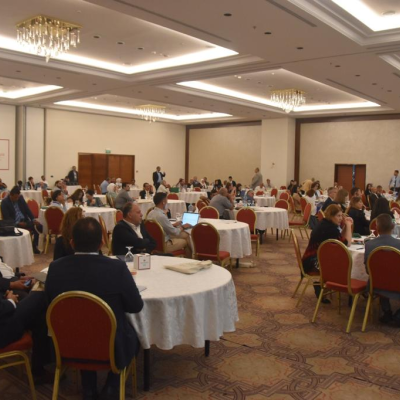
Dr. Abu Holi thanked the Japan International Cooperation Agency (JICA) and its working teams for overseeing and funding the Camp Improvement Project. He acknowledged the collaborative efforts of JICA and the Refugee Affairs Department in guiding and advising, as well as in preparing and formulating plans for camp improvement and implementing its decisions within Palestinian refugee camps. He also expressed gratitude to the Japanese government for its generous and impactful support to UNRWA, which has exceeded $1 billion over the course of 70 years. In the previous year, Japan ranked as the sixth-largest donor to UNRWA and was positioned as the fifth-largest donor country in 2023, having provided more than $40 million.
He warned of the potential repercussions of UNRWA's financial crisis on the living conditions of Palestinian refugees in the camps and its ripple effects on the stability of the region, which is already experiencing multiple crises with political and economic dimensions.
Dr. Abu Holi highlighted that the UNRWA financial crisis has directly impacted its services provided to 5.9 million Palestinian refugees, as well as its educational, healthcare, relief, and operational programs. It has also affected projects aimed at camp improvement and infrastructure development. The financial deficit in the general budget has reached 51% of the total budget, estimated at $1.632 billion. He noted that donor response to supporting project budgets has not exceeded 25% of the total budget, which is approximately $200 million.
Dr. Abu Holi called on donor countries to provide further support to UNRWA to overcome its financial crisis and enable it to carry out its tasks in delivering services and continuing its essential programs and emergency interventions among Palestinian refugees. He stressed that donor support is crucial, as UNRWA embodies international responsibility towards Palestinian refugees and the camps. He cautioned against attempts to restrict or dry up its resources, which would have catastrophic consequences for regional and global stability.
The Representative of the Japan International Cooperation Agency (JICA) in Palestine, Mitsutaka Hoshi, mentioned that technical cooperation between JICA and the Refugee Affairs Department started in 2017 through the Balsheikh Project. Since then, the project has implemented a comprehensive participatory planning approach in refugee camps, targeting 9 camps in the West Bank. The improvement plans for the camps were developed through the establishment of a "Camp Improvement Forum," consisting of representatives from all segments of the camp community, including marginalized groups such as women, children, people with disabilities, and the elderly.
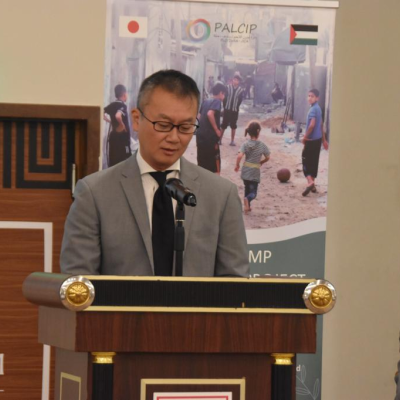
Hoshi further explained that JICA allocated a Japanese grant of 100 million yen for the implementation of some priority infrastructure projects outlined in the Camp Improvement Plan.
He emphasized the project's significance in achieving human security and dignified living for Palestinian refugees.
Adam Polakous, the Director of UNRWA Operations in the West Bank and Jerusalem, stated that UNRWA works in partnership with all parties to contribute to camp improvement, the development of refugees living within them, and assisting them in leading dignified lives. He affirmed UNRWA's commitment to staying in the camps as long as needed and uniting its voice with those calling for more support for Palestinian refugees.
He added that their partnership with the Refugee Affairs Department is strong and distinctive, expressing gratitude for arranging this important meeting and extending thanks to all donor countries to the Relief and Works Agency, particularly amid the growing needs of the Palestinian refugees.
In his speech, Dr. Nasser Qatami, Advisor to the Palestinian Prime Minister for Arab and Islamic Funds Affairs, highlighted the importance of working within Palestinian camps both inside and outside Palestine. He specifically emphasized the challenging conditions in Lebanese camps where living has become nearly impossible.
Qatami underscored the significance of UNRWA's work and the need to coordinate and partner with them, as they hold the expertise and mandate to operate within the camps.
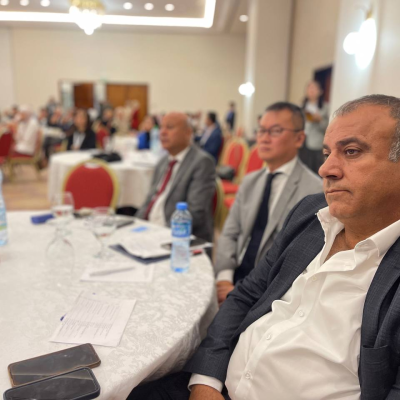
He expressed his pride in the achievements made through various interventions within the camps to enhance people's resilience and provide dignified lives. He emphasized the importance of committing to the outcomes of this workshop to strengthen people's resilience.
The workshop included presentations on the activities of the Refugee Affairs Department, the Camp Improvement Project, the work methodology of the Balsheikh Project, priority actions outlined in camp improvement plans, accomplishments related to the Japanese grant, capacity building, and fundraising efforts.
Participants from the forums related to camp improvement projects, including Jalazone, Aqaba Jabr, Ein Sultan, Noor Shams, Askar al-Qadim, and al-Fawwar, shared their experiences in various domains of work. They discussed success stories, community initiatives, collaborative approaches, and the involvement of youth, women, children, and people with disabilities.
